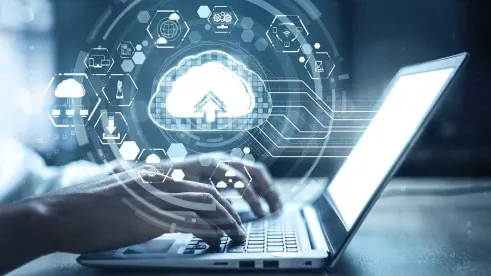The very first “courtroom” I ever entered as a newly minted lawyer was at the Chicago Administration Hearings Department at 400 W. Superior Street. That case, if I recall correctly, was about the city’s Real Property Transfer Tax and what portion of the sales price in a particular transaction was attributable to the transfer of real property. Exciting stuff, I know.
A few years later, the city promulgated Personal Property Lease Transaction Tax Ruling #12 and, for a brief moment, the eyes of the state and local tax world were on Chicago. While purporting to clarify existing law, the Chicago Department of Finance explained that if a particular sale was not subject to another tax and was for a nonpossessory computer lease, that payment was taxable under the Personal Property Lease Transaction Tax (“Transaction Tax”). The City went on to explain that if a “lessee (commonly referred to as ‘customer’) pays a lessor (commonly referred to as ‘provider’) primarily for the ability to use the provider’s computer to input, modify or retrieve data or information, the charge is primarily for the customer’s use or control of the provider’s computer and is taxable.” This, by itself, was not exactly groundbreaking. Case law from the 1980s and early 2000s had already touched on this issue. Where Ruling #12 really made news was its clarification that the tax also applied to “cloud computing, cloud services, hosted environment, software as a service, platform as a service, or infrastructure as a service.”
The Transaction Tax has since adopted the moniker of “Cloud Tax” or “SaaS Tax” for good reason. Software vendors that had never even heard of the tax were audited as were end-users of software in the city. Audit activity with respect to the tax has steadily increased while leniency with respect to its administration has decreased. In 2015, when the ruling was first issued, the City quickly attempted to address the taxpayer community’s concerns, dropping the applicable rate from 9% to 5.25% for cloud products and pushed back the effective date to January 1, 2016. It also offered a voluntary disclosure program specifically aimed to lessen the effects of its policy change.
Since 2015, however, the city has slowly walked back its original walk back. In 2020, the applicable tax rate was increased to 7.25% and in 2021, it was again increased to 9%. Moreover, while the line between cloud/SaaS products and professional services that may contain a digital element has become increasingly nuanced, the city has not issued any further substantive clarification since its 2015 Information Bulletin. The only other development with respect to the Transaction Tax came in January 2021, when the City issued an Information Bulletin providing that remote software vendors would be subject to a “safe harbor” (i.e. not be subject to tax) if their receipts derived from Chicago customers did not exceed $100,000 during the most recent consecutive four calendar quarters.
With the recent election of Mayor Brandon Johnson, it is hard to imagine that enforcement activity of this somewhat nebulous tax will not continue to increase. Johnson’s calls for a Big Banks Securities and Speculation Tax appear to have found little support at the state level (Illinois law specifically preempts local home rule governments from levying “any tax on stock, commodity or options transactions”), and the Transaction Tax has proven an opportunity for the city to tax indirectly what it may not tax directly. As the city audits vendors and customers concurrently, even transactions that are likely not taxable will probably get caught up in the fray, potentially twice.




 />i
/>i
